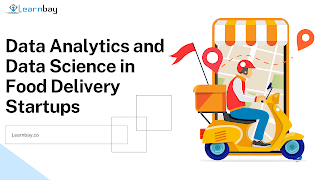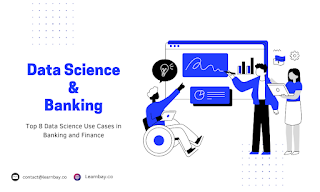How Data Science Can Aid HR in Recruitment
The daily analysis is needed to produce insights for proactive action in critical HR processes like hiring, training & development, work performance analysis, employee dissatisfaction management, and retention management, among others. The corporation invests time, money, and resources in these operations. If the organization doesn't choose the appropriate applicant for the right job at the right time, the effort and money invested in hiring are squandered.
Numerous applications are submitted from numerous sources when a company posts a job opening. The HR department spends significant time screening, analyzing, and choosing the best candidate for the job role described. Following the hiring of the candidates, the organization should create and implement new tactics to keep the employee on board for the duration of their employment.
Click here to learn more about the data science course in Bangalore, developed with accreditation with IBM.
How Can Data Science Help HR?
In the modern world, businesses have begun implementing deep data science technologies in various business functions, including marketing, sales, and customer support, among others, and have already had some success. Artificial intelligence (AI), machine learning (ML), deep learning (DL), NLP, and other data science technologies can be very helpful to the human resources department in extracting actionable data insights to develop more effective methods.
Data Science Use Cases in HR
Data-driven Hiring
The likelihood of passing up the ideal applicant is reduced by finding the correct profile at the right moment. The trained system assists in recruiting by eliminating the list of undesirable or unqualified applications until the system locates the ideal applicant profile. Also, making the best recommendations at different points in the employee life cycle helps in keeping the asset.
The hiring method is search-based. Hiring the best people for the intended profile might be difficult when humans carry out a search due to the possibility of prejudice and human mistakes.
Yet, the accuracy of recruiting the ideal candidate for a particular function will be far greater if a data-driven system handles the same task. Also, it will filter and complete the candidate list faster than humans can.
There are four stages to the data-driven hiring procedures:
Candidate outreach
Reaching out to potential applicants is like an advertisement funnel for any organization. A company can comprehend the specific skills needed for the position based on intelligence discovered through data analysis and modeling of historical data. This specifically tailored search lowers the number of undesirable apps shown and improves the precision with which the relevant applications are found.
Screening
One of the labor-intensive steps in the hiring process is the screening of resumes. A recruiter can be given a small number of resumes that match the necessary qualities of a job post after an AI-based system has combed through thousands of profiles.
Engagement
The AI-based automated system communicates with the shortlisted candidates on a regular basis with personalized and updated messages from the recruiters, assisting the recruiters in obtaining the necessary data from the selected individuals.
Intelligence
Data science may also compile details about a candidate's qualifications, background, and personality. Social media, online forums, and other online resources are just a few places where the data may be gathered. Accurate information analysis and candidate insight extraction are made possible by advanced algorithms.
Performance Assessment
With its 600 employees spread over three separate sites, Jelly Belly, a US candy maker, used two distinct performance analysis procedures. It once had an old-fashioned method of performance analysis and evaluation.
It also used conventional methods in other places. During every year's performance review meeting, Jelly Belly started observing an uptick in staff turnover. After some time, they made the decision to employ a data science-based automated performance analysis system.
Employee morale is boosted when they believe they have received a comprehensive and accurate assessment, according to Jeff Brown, director of human resources at Jelly Belly. Effective personnel management is a fundamental element of any organizational growth, which simplifies keeping valuable people.
Data science technology may be used to create performance analysis systems that do not rely on human biases or errors and give a complete picture of an employee's contribution to the company. This may assist a business in locating great performers, rewarding them, and keeping them on for longer.
Retention Management
Workers are important resources. And with each month that goes by, the organization recognizes a greater value in them. According to research by the Center for American Progress, replacing a worker costs a corporation around one-fifth of its compensation. Using machine learning algorithms to forecast attrition may dramatically reduce these expenses for companies with high staff churn.
The HR department may enhance its employee retention efforts and plan new recruiting in advance using data intelligence on the reasons and times when employees are most likely to quit.
Companies may use the same data science techniques to understand their employees to improve the workplace, much as they utilize technology like Natural Language Perception to understand customer opinions.
Gartner just understood how important it was to understand its workers. The company collects data from its employees' social media accounts, emails, forums, and other accounts. In order to foster an environment that is friendly to employees, the gathered data is analyzed to produce quarterly reports, and the employee reports are sent to the appropriate coordinated managers.




Comments
Post a Comment